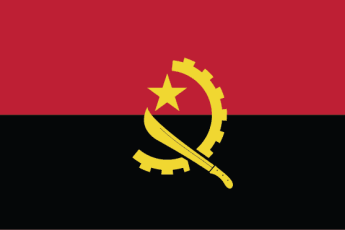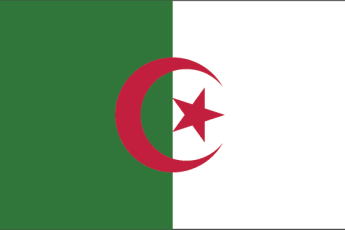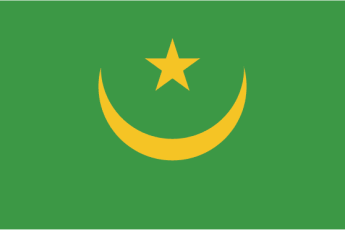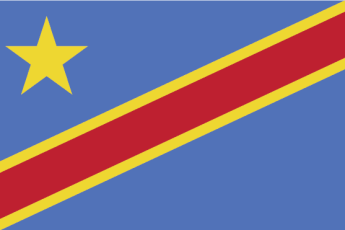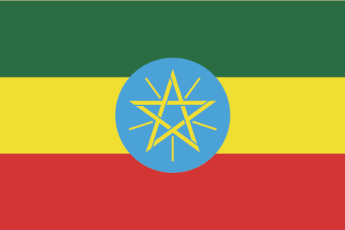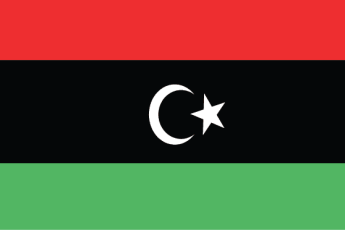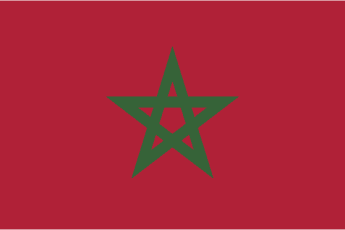Why Choose Kenyan Brides?
If you’re looking for a wife from a different country, a Kenyan bride might be just what you’re looking for. This country’s women are known to be submissive and tolerant of foreigners, as well as being family-oriented. This makes them the perfect choice for a foreign man. Read on to learn more about Kenyan women. You’ll be surprised at how attractive and tolerant they are.
Women of Kenya are submissive
African women are famous for their deference towards men, but that is changing now. In a new study, women in Kenya are shedding their submissive exterior. They have decided that men have been having their free lunch too long. Apparently, the bible has taught them to submit to their husbands and pay them dowery, or dowagery. This makes it easier to share responsibilities and roles. But how do they do this?
The country is overwhelmingly rural. Therefore, children will be raised separately from boys and girls, and boys will be taught gender-specific duties from the start. In most families, women are expected to be submissive to their husbands, and to not challenge their views. The gender roles are clearly defined, with the man generally being the head of the household and the primary responsibility for providing for the family. Men are expected to provide for the family, but rarely participate in household chores.
They are tolerant of foreigners
Many Kenyan men and women are open to meeting foreign men and women. Although the country does not recognise same-sex relationships, it is a common misconception that such relationships are acceptable. In fact, Kenya’s Constitution prohibits same-sex marriages. Nonetheless, such relationships are legal, as long as both parties freely consent. In addition, Kenyan men and women are protected from discrimination based on their gender identity.
Although this trend is beginning to shift, many Kenyans are still open to the idea of marrying foreigners. According to Nolan Quinn, research associate for the Council on Foreign Relations’ Africa Program, there are a few exceptions to this general rule. One of these exceptions is prostitution, which is still illegal in the country. However, prostitution in Kenya is not. Foreigners are welcome, but there is an expectation that they will not commit any crimes.
They are ambitious
According to psychologists, Kenyan brides are ambitious and are driven by their ambition to be successful in life. This is true of men and women alike, although ambition in women may be a little more extreme. Ambitious women can surprise society by becoming leaders, politicians, or scientists. They can also cause instability in the family. For instance, in the 1970s, the acrimonious divorce of politician Mwangi Mathai was partly due to his ambitious wife. She went on to become one of the most successful environmentalists of all time and later became Africa’s first Nobel Peace Prize winner.
This high-achieving nature makes Kenyan women ideal partners for ambitious men and women. Aside from being ambitious, they will also encourage their husbands to pursue higher goals. Kenyan women inspire men and women to work hard and live a good life. These women can help their husbands to pursue their dreams and aspirations. A partner like a Kenyan female can make many of their dreams a reality. It’s important to keep these qualities in mind when deciding on a partner for marriage.
Most Kenyan ladies are looking for men from outside their country. They don’t care for local men and prefer foreigners for marriage. Canadian and American men are generally considered intelligent, so Kenyan women want to marry men from these countries. They also consider men from other countries more capable than their Kenyan husbands. They’re ambitious and can offer more than their local counterparts. You might have to work harder to win a Kenyan mail-order bride.
As a woman, you have to remember that a Kenyan woman has a strong sense of femininity. They can be ambitious and work hard to achieve their goals. They’re also highly educated and well-spoken. Most Kenyan women can speak English fluently and are comfortable with western men. The downside of Kenyan women is that they can be difficult to please. And they can be very conservative at times. Nonetheless, they can be very attractive to a western man.
They are family-oriented
Marriages with Kenyan brides are considered to be a great way to start a family in an African country. Western men are often drawn to Kenyan brides because they are family-oriented and nurturing. Their good education and English-speaking abilities make them great associates for western men who are hoping to start a family. Kenyan girls are also excellent communicators and good cooks, making them excellent options for birdes-to-be from other countries.
Most Kenyan brides are careful, hard-working, and family-oriented. They are also open to polygamy and are not concerned with looks. They also have a long time frame to find their future significant other and don’t rush into associations. They also expect their groom to know their tribe and their family, and he must have knowledge of his own. Therefore, it is a good idea to take your time when dating a Kenyan bride.
Marriage is considered an important rite of passage in most African societies. In Kenya, marriage is an opportunity for families to expand their kinship network, and in addition to blood relations, affinal relatives are acquired. As a result, Kenyan families include a large network of members: brothers, sisters, parents, grandparents, uncles and aunts, cousins, and even unborn children. This wide network of relatives serves as the economic and social unit in the marriage.
Kenyan women do not practice polygamy, but do accept polygamy. In addition, they are proud of their femininity, and are eager to have children. These women are good mothers and respect their partners. They also enjoy long walks and shrewd conversations with their partners. But even though they are family-oriented, they are also romantic. A Kenyan bride is likely to be a good wife and mother.
They pay dowry
Today, 42 tribes in Kenya accept dowry as a norm in marriage. Although it is no longer the traditional norm, dowry has long been valued by the women themselves. It serves to add value to the woman, legalizes customary marriage, and validates children born in the new union. Every tribe in Kenya has its own unique name for the bride price: the Luo call it Ayie, the Agikuyu call it Ruracio, and the Kalenjin call it Koito.
Human rights groups have long argued that dowry payments are unjust and have contributed to women being denied equal share in matrimonial property during divorce. Kenya’s Federation of Female Lawyers and Human Rights Watch have long lobbied for a dowry-free society. The 2014 Marriage Act still requires couples to pay a dowry to the bride’s family. However, a new law passed in July this year states that the dowry payment should be voluntary.
In addition to dowry payment, Kenyan women must pay the man’s family a sum of money or goods as a symbol of appreciation. This payment serves to show that the man can support the girl and prove his worth to her family. In the Agikuyu, dowry consists of goats, traditional brews, and honey. In the Abaluhya tribe, the bride-to-be must pay thirteen head of cattle as a dowry. The Kalenjin tribe pays cattle as dowry. These dowries differ across the 42 tribes in Kenya.
The price of a Kenyan bride varies from tribe to tribe and from community to community. The amount of dowry for a Kinyua bride can be as much as four times the average Kenyan’s income. However, modernity has led to the demise of many traditional customs and traditions, dowry remains a powerful symbol of respect for the bride’s family and commitment to her.
Dating With Kenyan Girls
The first thing that you should know about dating with Kenyan girls is that they are not interested in playing hard to get. Their main objective is to gauge how much value you place on the relationship. They are not materialistic and do not care about a lot of other things, but they do want to be spoiled by their man. Compared to other African women, Kenyan women are conservative and try to keep their traditions and customs, and they don’t tend to be too westernized. This makes dating with Kenyan girls a little bit more complicated than it should be, but it’s definitely possible to make it work.
Avoiding slang
When you’re talking to a Kenyan girl, it’s important to avoid slang and double meanings. Kenyan women are known for their beautiful brown eyes and silky skin. When they’re young, Kenyan women have slim builds. But as they get older, they start to develop curves. If you’re looking for a relationship with a Kenyan woman, avoid using slang and double meanings when communicating.
If you’re trying to impress a Kenyan girl, make sure to speak good English and show your respect for their country and heritage. You should be aware that most women in Kenya speak good English, but they still expect men to pamper them. It would be strange to suggest splitting the bill at a restaurant if you don’t know her language. This would send a message of disrespect and would probably backfire.
When speaking to a Kenyan girl, be careful with slang and cultural references. Women in Kenya are bold in dating men from outside their country. You may have to learn about their cultural background in order to understand them. If you know the culture and language of a country, you can learn how to speak their language. This way, you can learn more about the culture of that country and her customs.
Avoiding being nosy
When dating a Kenyan girl, you should be considerate of her culture. The country is famous for its pampered women, and dating a Kenyan lady can be a difficult task if you are not careful. If you want to impress her, make sure that you do not ask too many questions. Also, avoid making her feel uncomfortable by being overly nosy. The following are some tips to avoid being nosy when dating a Kenyan girl.
Never be overly nosy: When you’re dating a Kenyan girl, it’s important to remember that they are competitive and appreciate compliments. Kenyan women don’t like being criticized, and will appreciate gifts that are native to the country. You should avoid being nosy about their family life or their job, as their culture and politics are competitive. If you find your girl being overly nosy, try to avoid being too nosy and give her some space.
Complimenting
Complimenting Kenyan girls is an easy way to get the attention of a woman in this country. You can do this in a variety of ways. First, be subtle and do not overdo it. Kenyan women are known to be very modest, so you should avoid saying too much. In addition, Kenyan girls love to talk and shop. If you have a lot of patience, they may even compliment you back.
Another easy way to win the heart of a Kenyan girl is to tell her that you like her body. These women have beautiful skin and big brown eyes. Their skin is silky smooth and they have slender bodies when they are young. As they age, they put on curves. This compliment can make any girl feel good. You can also ask your potential date if she has any favorite colors, such as pink or blue.
It may be easier to compliment a Kenyan woman than a Western woman. In general, women from Kenya are much better at work, studying, and earning money than a Western man. Most of them spend their time in evening classes instead of drinking and wrecking their health in bars. This may make them more attractive to a Western man. While the white man may be able to get away with complimenting an African woman, she will likely not respond to it.
Avoiding dowry
It is a common misconception that you can avoid dowry when dating Kenyan girls by not marrying within their group. Kenya has a unique religious and ethnic makeup, and many traditional practices are still practiced. One of these is dowry, which is payment made to the family of the bride. This is usually in the form of livestock in rural areas, and is more commonly paid in instalments. Divorce is not uncommon in Kenya, but it is still stigmatized. Most people remarry after a separation.
In most African societies, dowry has a mixed history. While dowry was a popular custom in some cultures, the practice has largely negative effects. It stands at the core of patriarchy in many societies. In many parts of the world, the bride-wealth payment was tied to goods or services that the bridegroom provided for the family. In Kenya, the suitor would generally deliver livestock to the bride’s family.
Another problem is forced marriage. Many pastoralist communities marry off their daughters at very young ages in order to acquire dowry for the marriage. These girls often do not complete school, and will never go back to school after the marriage. In addition, frequent pregnancies and child-rearing prevent girls from continuing their education. For these parents, education does not offer immediate returns, so they don’t want to wait 20 years to receive a return on their investment. However, the dowry is a huge source of money for families, and is often a very good incentive to marry a girl.
Avoiding nyama choma
While it is common to go out and eat nyama choma in Kenya, you should avoid it if you’re dating a Kenyan girl. This dish is a local delicacy that is grilled meat, mainly chicken or pork, served with side dishes of Ugali, kachumbari, and french fries. Whether you’re dining in a trendy cafe or cozy neighborhood alleyway, you will find the delicacy in almost every restaurant.
To avoid nyama choma when dating a Kenyan girl, remember that they don’t look for a long-term relationship. Nairobi women usually want to be married by the age of thirty. You’re not likely to get a long-term relationship with a woman under 30 years of age, so you shouldn’t expect to find one who is single. However, if you know any other women in Kenya who are single, you’ll receive plenty of questions from their friends and families.
Finding love online
If you’re looking to find love in the big cities, the best places to meet Kenyan girls are Nairobi and Mombasa. These cities have high population densities, and are renowned for their quality singles. If you’re single and live in a small town, you should consider moving to one of these cities for a better chance of finding true love. There are many dating services that cater to Kenyan singles.
The dating sites allow members to browse through profiles of recommended matches. You can also create your own search, save saved searches, and send private messages. Standard members have limited communication options, but are able to visit profiles, send messages, and add favorite people. For those who would rather meet potential matches before making an actual meeting, Metrodate is the perfect place to start. However, this doesn’t mean that it’s a safe place to meet women – there are a number of dangers associated with this type of dating platform.
One of the best options for finding love online with Kenyan girls is to use a dating site with a premium membership. This service offers premium membership for a low price. Premium members have extra features and can communicate with all members, and you can even hide your online status. Premium members also get two times the space for their profiles compared to free users, so you should be aware of this. It’s also worth spending a little extra money to avoid scams.
Kenyan Women For Marriage
If you’re considering marrying a Kenyan woman, you need to remember that this woman is a loyal woman. She values loyalty and looks for the same qualities in a man. Although she’ll settle for a man who is trustworthy and loyal, she still prefers a man who will love her for who she is. You’ll find that a Kenyan woman for marriage is looking for a man who values her integrity and is a true friend.
Human Rights Watch interviewed Nandi women
In a report published this spring, Human Rights Watch documented the sex abuse of Nandi women in Kenya. The report’s authors consulted a number of survivors to document their experiences. The majority of survivors reported that they were not allowed to leave their homes for fear of contracting a disease or other danger. Others cited lack of transport during curfew hours as their reason for not leaving.
The report cited a 2011 survey conducted by Human Rights Watch in the Nandi region of Kenya. The survey included 26 interviews, with respondents including five guardians of children who had suffered sexual abuse, six representatives of NGOs, two government officials, and two community activists. All interviews were conducted in English and were conducted by telephone. However, the respondents did not give a time period for when the violence occurred.
Some women in Kenya still face similar sex abuse, including being thrown out of their homes, stripped of their possessions, and coerced into risky sexual behaviors. The government does little to address these issues. But the recent election of President Mwai Kibaki and his political party, the National Rainbow Coalition (NARC), may have set the stage for change in women’s property rights.
Nandi women are educated
The primary goal of educating Nandi women for marriage is to enable them to find a husband. The Nandi community in Kenya consists of about 11,000 people, with approximately one-third of women attending school. The Nandi women are also known as Kalenjin and have produced some notable Kenyan athletes. Some of these notables include the legendary Kip Keino, who won gold medals at the 1968 and 1972 Olympics, as well as Prof. Mike Boit, who won a bronze medal in the 1972 Olympics. Others are Pamela Jelimo, who became Kenya’s first female Olympic gold medalist. Also, Super Henry Rono, who is currently serving as the United Nations Goodwill Ambassador, is a Nandi. He is a former member of Kenya’s parliament and the head of the council of governors
In addition to educating Nandi women for marriage, the Nandi society has laws against polygyny. However, this tradition was likely existing before the eighteenth century. It is not unique to Kenya, as other ethnic groups in the region practice similar customs and practices. The tradition is not against written law. It is common among various ethnic groups and communities in sub-Saharan Africa.
The Nandi are a group of Southern Nilotic communities. They share a language called Kalenjin. Their language is distinct from the other Kalenjin dialects. It may not be mutually intelligible with other dialects. Historically, the Nandi people of Kenya were semi-pastoralists who planted finger millet as a staple crop. Today, they are mostly settled cash-crop farmers who grow maize, milk, and tea.
Kenyan women are romantic
If you want to get married to a beautiful Kenyan woman, you need to know that most of them are very good-looking and would love to be with the right guy. Luckily, you can find a Kenyan bride through a matrimonial service. Kenyan girls are extremely good-looking and would love to meet the right guy to start a romantic relationship. If you live in the western world and are interested in getting married to a Kenyan girl, you can easily find one of these beautiful women through an online matrimonial site.
Many Kenyan women are very traditional and have very strong religious beliefs. Mzee John Lazare, the Secretary of the Nyakach Elders, says that women from the Nyakach are notorious for being hard-headed and hard-to-domesticate. He says that this is because the Nyakach women are traditionally violent, although they are also generous. This is not to say that the Nyakach women are unromantic for marriage – they’re just a little bit different.
Although many Kenyan men don’t prefer marriage within their tribe, some couples do. Many of them are arranged by their families. Though dowry payments are several times the average monthly income for a Kenyan woman, they are still a symbol of the clan’s dignity. Although many men can’t afford multiple wives and children, it is a traditional way of life for the women. This may be the reason why Kenyan women are so romantic for marriage.
Kenyan women are accepting of polygamy
A recent bill in Kenya legalized polygamy for marriage, but many women questioned its morality and ethical implications. Some women argued that the bill degrades the women in a marriage and is therefore wrong. Women are the ones who make marriages, not the men. The bill also allowed a man to take more than one wife without consulting his first wife. If President Kenyatta signs the bill, women activists will sue.
While many Western men may feel that polygamy is un-African, Kenyan women are embracing the practice. These women are proud of their femininity and eager to have children. They are respectful and caring with their companions, and they are loyal to their family. In addition, Kenyan women are romantic and enjoy long walks and clever conversations. However, polygamy is not for everyone. It is an ancient tradition that is slowly dying out in the country.
While it is the most common form of marriage in Africa, polygamy is not yet a common practice in Kenya. Kenya’s polygamy rate has decreased in recent years, from nearly 22 percent in the late 1970s to 15 percent in 1989 and 11 percent in 1993. However, many polygamous men and women are not living with their wives in urban areas. Women and children who are a part of polygamous marriages may become vulnerable to exploitation and poverty.
Kenyan women prefer men who can provide for their families
While many African women desire a husband who can support their family, Kenyan women often prefer men who can support their own family financially. Traditionally, many men have avoided marrying outside their family’s social group. Some marriages are arranged by their families. Earlier, multiple marriages were common, but today few men have the means to support more than one wife. Thus, many women prefer men who can provide for their families, and even more so – those who are able to support multiple wives and children.
This practice is prevalent in many African countries, including Kenya. While polygamy is generally frowned upon, women in Kenya can and do choose to marry as many men as they want. In many cases, a man may choose up to three wives if he is wealthy enough. The number of wives a Kenyan man may have is not uncommon in his society. Women in Africa have traditionally had no choice but to enter into “customary” marriages in order to protect their families.
In contrast, the dowry system, which entails a payment by the groom’s family to the bride’s family, remains relatively low. In rural areas, this payment is often livestock, while in urban areas, it is money. Despite these restrictions, divorce is very common in Kenya and is accompanied by a lot of stigma. However, most Kenyan women who separate end up remarrying.
Kenyan women are ambivalent about marriage
According to a study by the African Population and Health Research Centre, a third of Kenyan women are ambivalent about marriage. According to the study, an estimated 75 percent of abortions in Kenya are unsafe. This is significantly higher than the global rate of 27 percent. This result may be due to a number of factors. One of the factors is that a third of Kenyan women view marriage as unimportant for a number of reasons, including poor economic conditions and a lack of social support.
Kenyan Wedding Traditions
One-quarter of the population in Kenya is Kikuyu, who call themselves Gikuyu. Kikuyu wedding traditions include planting twigs, or “kuhanda ithigi,” and “kumenya mucii,” or getting to know the bride’s family. The groom’s family visits the bride’s parents to discuss the wedding date and determine the amount of “ruracio,” which is the equivalent of a dowry payment.
Masai brides apply lamb fat and oil to their scalps
The Maasai brides’ traditional wedding ceremony involves a simple ceremony incorporating many practices that are vital to the survival of the community and the culture. This ceremony honors the male line and the cow, which serves as the bride’s main source of sustenance and labor. The bride and groom are blessed by applying oil and lamb fat to their heads. A ceremony that marks the start of married life, the bride is led to her new husband’s home by her mother-in-law. The ceremony is followed by two days of living with the groom’s family and spending time with her new husband.
In addition to applying lamb fat and oil to the head of the bride, the groom and his father cross wooden sticks to bless the bride. It is believed that the new marriage will have lasting roots and maintain the strength of the trees. The Masai brides shave their heads before the nuptials. As part of the wedding ritual, the bride applies oil and lamb fat to her scalp. The groom and his family also bless the bride by spitting on her head. While spitting on the head of the bride is considered disgraceful in most cultures, this practice is believed to bring her good luck.
Kikuyu brides wear a cow skin skirt
A cow skin skirt is a traditional wedding attire for Kikuyu brides. This skirt is a traditional way to show off one’s modesty. The skirt is worn over the hair and is tied behind the waist. A few men are also present. The groom will wear a red loincloth. This ceremony involves a few close family members from both sides of the family, as well as the groom’s brother. The dowry is paid through the ruracio process, where two ngoimas and a fatten ram are given to the bride. The bride’s father will only ask for a percentage of the dowry, as the ntheo ceremony is the most important part of the wedding.
Zulu brides wear a unique headdress
The bride’s clothing is also unique to Zulu culture, as she can change outfits more than three times during her wedding day. Zulu brides usually wear leather skirts with isicwaya skins over the breasts to cover them, a headdress called an inkehli, and beaded necklaces and bracelets. Zulu brides also wear red and white ocher designs on their arms and legs.
Most women in East Africa don unique headdresses, and the headdress of Zulu brides is no exception. The headdress is made from a traditional Ndebele cloth. The Ndebele wedding fabric is popular in Zimbabwe and is worn by most Swahili brides. Other brides choose to add lace and kitenge to their bridal dresses, and all look stunning in their traditional headdresses.
The groom’s wedding attire is similar, although there are more details to the outfits. Modern Zulu grooms wear a calfskin headband and animal prints on their pants. The grooms wear black pants and matching half coats. The groom wears a white shirt and black pants with animal prints on them. The bridesmaids wear black shirts and a red skirt.
Kamba brides are usually Christian ceremonies
Kenyan customs, including weddings, are largely same-sex. The Kamba people follow long courtship rituals. While most Kamba brides and grooms marry under the Christian tradition, some of them choose to marry in another religious setting. In such cases, the groom throws an important party called the “ntheo,” proving that the bride belongs to him. If the couple is living together without a wedding ceremony, the rituals are rendered invalid.
Marriage rituals are complicated and often involve dowry payments. Even when the ceremony is Christian, there is a certain procedure to follow. Parents and elders will become involved with the young people’s lives when they decide to get married. A visit to the bride’s family from the groom’s family will announce their intention to marry, and the groom’s family will parade him. Traditionally, the groom will not call the bride by her first name.
Zulu brides cry
The traditional ceremony for a Zulu wedding begins in the home of the groom’s family. Typically, the bride leaves her family home very early in the morning, covered in a blanket. She is told not to look back as her father takes her to her new family home. She first introduces herself to her new husband’s ancestors before walking through the house’s kitchen. The groom’s family must pay a penalty if they do not notice the bride before the ceremony begins.
In addition, a groom is required to wear a ceremonial cloth that is made of henna, which symbolizes purity. The ceremony also includes songs and prayers. The groom’s father, also known as the “groom’s mother,” often spits on his bride and takes a moment to kiss her after the ceremony. The bride’s father also has the right to pick the groom’s cloth for his son.
Zulu brides wear a cow skin skirt
The traditional wedding ceremony for Zulu women takes place in the groom’s family’s home, known as Umabo. Zulu brides wear a cow skin skirt with a distinctive headdress called an isicholo to indicate their married status. The father of the groom welcomes his new daughter-in-law and gives her to her new family. Guests sit on grass mats, and bridesmaids bring gifts to her new in-laws.
In Zulu culture, the brides wear a cow-skin skirt called an izicolo, which is typically made of calfskin. The bridesmaids wear a traditional headband made of cow-skin, and the groomsmen wear similar outfits to the bride, but are often less flashy. The groom and bridesmaids share many cultural traditions and ties, so it is not surprising that Zulu brides wear cow-skin skirts at their weddings.
The traditional wedding ceremony in Zulu culture includes a traditional cow-skin skirt. It is worn during the Umemulo ceremony, which is an important part of Zulu culture. The cow-skin skirt is worn by the bride during the Umemulo ceremony, and is symbolic of strength and victory. It can last through the night, but most girls who attend the wedding are fascinated by the Umemulo ceremony and want to be part of it.
Massai brides cry
The traditional wedding ceremony in Kenya is filled with color, dance and song. However, it is not without controversy. The bride cries as she is led to her husband’s homestead. Massai culture discourages intermarriage with other groups in order to protect the Maasai way of life. The bride must wear a necklace in a striking color or bold design to be accepted as a wife.
The ceremony is attended by an honour guard, and the officiant wears a Maasai shuka as a stole during the ceremony. The setting for the ceremony is beautiful and Mother Nature provides a beautiful backdrop for the celebration. White rose petals attract butterflies and birds to the ceremony site. There is also a ceremonial dance for the groom’s family members. After the ceremony, the Maasai family will leave the area.
In addition to the spitting ceremony, Massai brides are also subjected to a number of other traditional wedding customs. One of the most cherished is the blessing by the groom’s father on his daughter. It is considered a good omen and is a sign of good luck. Unlike Western brides, Massai brides do not have to pay their grooms’ wedding costs.
Kamba brides wear a cow skin skirt
The traditional dress for Kamba brides at a wedding ceremony is a cow skin skirt. The bride wears a cow skin skirt in order to cover her legs and keep the groom’s clothing clean. The skirt is often made of cow’s skin and is decorated with beads, tiaras, and other decorative items. The cow skin skirt is considered a symbol of fertility and a good luck charm.
Traditional Kamba clothing varies according to age and gender. Kamba men wear trousers and shirts. Young boys wear shorts and short sleeved shirts. Women wear skirts and blouses in western styles. In addition, they shave their heads to maintain a spirit of equality and a sense of honor. The Kamba culture is incredibly rich.
The Kamba culture is a unique blend of Bantu and indigenous peoples of Kenya. The Akamba have been living in the area since the 17th century and are closely related to the local Kenyan tribes. Their land is known as Ukambani and includes parts of the Makueni, Kitui, and Machakos counties. Among them, the Akamba live in the lower eastern counties of Kenya.

